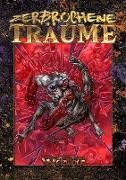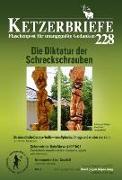Theory for Theatre Studies: Economics
BücherAngebote / Angebote:
How do the use of economic categories (such as capital, commodification, financialisation, labour, property, value, money, production, and consumption) help us understand the operations of theatre, and the works it creates, in new ways? Theory for Theatre Studies: Economics explores the relationship between theatre and economics. It considers key economic problems as they arise in the theatre, and how theatre offers a distinctive lens through which to explore theories and concepts that have concerned economics and political economy since the early twentieth century. Through an analysis of international case studies drawn from contemporary performance, this book also explores how we might open up different ways of thinking about economics in and outside the theatre. The case studies examine how a range of significant economic concerns have been explored in a wide variety of plays and performances in just the last decade alone: corporate greed (Lucy Prebble's Enron), tax havens (Caroline Horton's Islands), outsourcing (Rimini Protokoll's Call Cutta in a Box), public debt (Lin-Manuel Miranda's Hamilton), economic inequality (Camden People's Theatre's Whose London is It Anyway? season), and money (Shunt's Money, and Kaleider's The Money). Part of the Theory for Theatre Studies series which introduces core theoretical concepts that underpin the discipline, Economics provides a balance of essential background information and original thinking, and is grounded in case studies to illuminate and equip readers. Volumes follow a consistent three-part structure: an overview of how the term has been understood within the discipline, current trends illustrated by substantive case studies, and emergent trends and interdisciplinary connections. Volumes are supported by further online resources including illustrative material, questions and exercises.
Noch nicht erschienen. Termin unbekannt

![Christmas Story [Deluxe Edition]](https://support.digitalhusky.com/media/annotations/sorted/226/22614181/CHSBZCOP0322614181.jpg)


